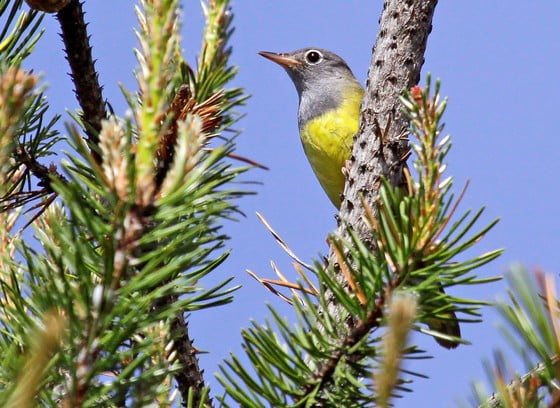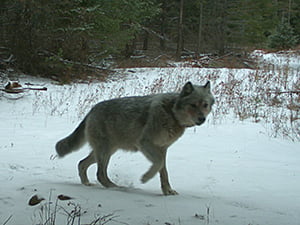
LAS VEGAS – On Saturday, Conservation Officer Justin Hepler responded to a call from a Las Vegas homeowner who was bitten by a fox she believed was starving when she attempted to feed it.
After meeting with the bite victim at a local hospital, the officer learned the fox had jumped into a parked vehicle and began eating insulation on the door and chewing on a hammer handle. The homeowner admitted to offering the fox a bowl of dog food when it bit her on the wrist and hand, leaving several puncture wounds on both arms.
Once on the scene, the officer was able to locate the fox, discovering it exhibiting abnormal behaviors consistent with rabies. The officer first attempted to capture it, but when it became aggressive and attacked he euthanized it. The New Mexico Department of Game and Fish submitted the fox for testing to the state’s Scientific Laboratory Division. Results came back positive for rabies late Monday.
“It’s important to stay away from any animals acting sick, fearless, aggressive or friendly,” said Dr. Kerry Mower, wildlife disease specialist for the New Mexico Department of Game and Fish. “It’s also important people never attempt to feed wildlife.”
Rabies is a deadly viral disease that can be spread among mammals, most commonly through aggressive behavior, such as biting, that causes exposure to saliva. It is most commonly found in foxes, bats, skunks, coyotes and racoons, but can be transmitted to humans and pets.
The public should contact their local Department of Game and Fish office or call radio dispatch at (505) 827-9376 for assistance with wildlife acting oddly, especially coyotes, skunks, raccoons, foxes and bats. The public should immediately contact the New Mexico Department of Health at (505) 827-0006 if they or their pets are bitten or otherwise exposed to the saliva of wild animals.
Here are some guidelines to help protect yourself and your family from rabies:
- Stay away from wild or unfamiliar animals. Do not attempt to feed, approach or touch wild animals (alive or dead). Teach this important message to your children. Rabid animals may show no fear of people and may seem friendly or become aggressive.
- Pets should be up to date on rabies vaccinations and wearing current license and rabies tags on their collar.
- Horses and other livestock should be considered for rabies vaccination to protect them from rabid animals that may attack them.
- If you or a loved one are bitten by an animal, or come into contact with an animal’s saliva, wash the exposed site immediately with soap and water and seek medical care as soon as possible. Be sure to report the bite to local conservation officers, animal control officers, and/or health officials as soon as possible for recommendations about receiving rabies exposure protective vaccination.
- Keep pets on a leash at all times.
- If your cat or dog has been bitten or scratched, call your pet’s veterinarian, even if the wound appears to be superficial.
- If you see a sick or dead wild animal, or a wild animal acting abnormally, stay away and report it to the New Mexico Department of Game and Fish. For more info about rabies see the New Mexico Department of Health website at: https://nmhealth.org/about/erd/ideb/zdp/rab/

